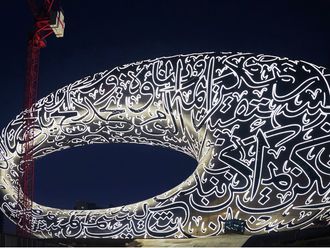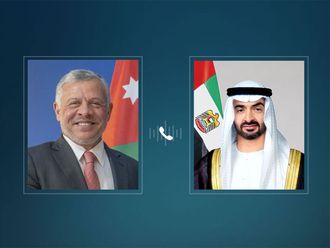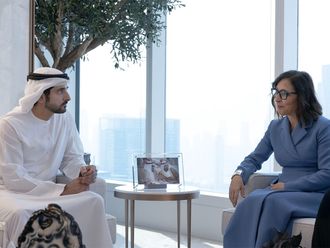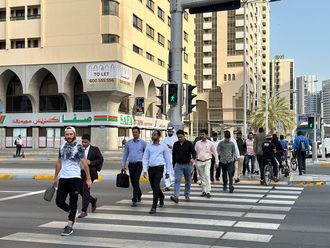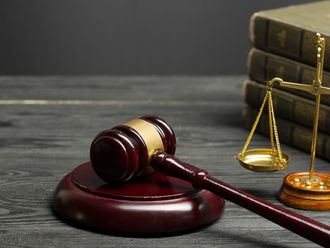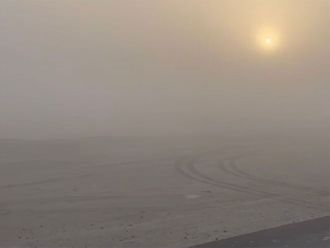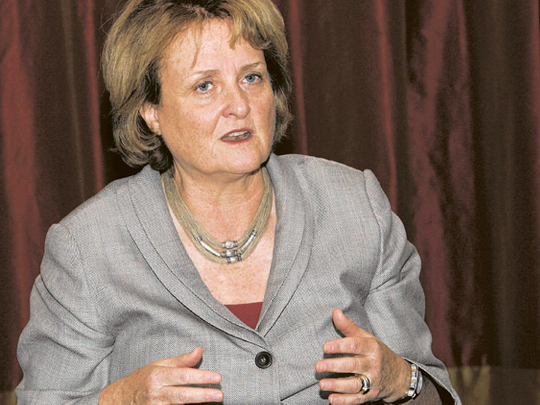
Judith McHale is currently the US Under Secretary of State for Public Diplomacy and Public Affairs. She spoke to Gulf News during a visit to Dubai, after giving an address at the two-day Celebration of Entrepreneurship event on Tuesday.
Gulf News: What role does public diplomacy play in reducing the threat of violent extremism?
Judith McHale: I think it's critical, and the whole role of public diplomacy is one of the key pillars of the Obama administration, foreign policy initiative. Both President [Barack] Obama and Secretary [Hillary] Clinton feel very strongly that in today's interconnected world with information being available widely into societies, we — the other governments — have to do a better job of connecting these people, and connecting the people to each other. I think that the more we can have people having direct conversations with each other — and through those conversations and initiatives, through history of cultures we can learn about each other and if we do that, at the people-to-people level, that will provide us with a path to a more peaceful and prosperous future. So it's a key part of what we're trying to do, to really have people engage with each other, to learn about each other.
So it's not public diplomacy, it's not messaging, it's not just a marketing campaign. It's really fostering an environment where you can strengthen relationships between people. I say a lot, if I could wave my magic wand and bring everyone from the United States here and bring everyone here to the United States and people would just be speaking to each other, they would learn that they far more in common than what divides them. They would find opportunities to work together. So that's what we're looking to do. We're trying to figure it out. It's a two-way street. It's ‘We want people in this region to know more about the United States and we want people in the United States to know more about this region'.
What methods are you using to encourage dialogue?
We have a broad variety of methods and programmes and initiatives, everything from English language training to our exchange programmes. We have a long history of student exchange, of bringing speakers to this region, of bringing people here to the United States on those programmes and now increasingly we're looking to technology to expand that even further. Everything from getting schools to connect, schools here in this region to connect with the United States, at a high school level, at universities, students working together on projects. I've had some conversations both here and in Bahrain, saying ‘How can we bring the culture and history from this region to other areas of the United States by working with our regional arts council?'. So historically a lot of the exchange has stopped at the ocean, the coasts if you will, in New York, Washington, Los Angeles, typical places.
Well, frankly, part of our goal is to get that more broadly across our country, so that people in Cincinnatti or Denver or Oklahoma City, learn about this region, and so we're going to be working collaboratively to make those connections, to sort of introduce... and I sort of had conversation while I was in Bahrain and here as well, to say ‘How can we do that?' Let's figure out a way of doing that. On our side we know where those regional centres are, cultural organisations, and so we're going to be able to in a sense reach out and do that. So it's a wide array of tools and programmes we're going to do. We're sort of... it's a big challenge, but we're also lucky, because I think we have a lot of tools that we can bring to bear.
Do you think Obama has improved the image of the US in the Middle East; and what do you think the image is today?
I think he continues to be… he's deeply committed to improving our relations there and I think people know and understand that and I think definitely he's had a positive impact on people's perceptions throughout the region."
Does the Arab and Muslim world understand exactly what the Americans are doing in Iraq and Afghanistan?
I think that we could do — and we are trying to do — a better job of explaining that. Because if we don't, what happens is you put your own interpretation on it, which might or might not be correct, and if it's not correct, I now come back and explain to you what I am doing, and it doesn't sound particularly credible, because it's after the fact — it's just the same in human life. Now you're defensive, as opposed to being upfront with what you're trying to do…. Now you're coming back later. In the press of trying to get something done or what have you, you put out information. Nobody knows why you're doing what you're doing. Now you're defensive. That's not a good position to be in, and so we're trying to get better at that and really anticipate the impact of some of what we're trying to do. To do a better job of informing people who are going to be directly impacted by those decisions or policies, why we are doing what we are doing. And again, you may not like it, but at least you have a context for understanding. I think that's the same in human relations, so that's what we're trying to do.
Is that open communication something that Obama has himself directed?
In terms of the tone of the agenda he has set, yes. Have I sat down with him directly? No. From day one this is something that we have done, and frankly in today's world, with all the technologies, with the internet and other things, we have to do it. I think it's important anyway, but the consequences of not doing that are pretty serious.
About the recent parcel bomb scare — discovered in Dubai and the UK — how would you say that the US government dealt with this compared to how they might have dealt with it five years ago?
I think that first off… we want to thank the governments in the region who helped us with that information because we are all engaged in this battle against this terrorists who would attack all of our citizens. So I think the level of cooperation amongst the governments was really good in terms of how they did that. You can always get better at things, in terms of doing it. But it happened very rapid-fire in terms of how that information was made available and the actions were taken and I think certainly from our Government's perspective we were very appreciative… of the help that we got from the region.
And so partially and probably the answer to the question is ‘Yeah, we're getting better at it, working together, working collaboratively, understanding the importance of sharing the information rapidly, so that we can come to terms with it'. I believe that we are getting better and I think that is a good thing. I think it's a good thing for us and it's a good thing for people in this region as well.
How harming were the WikiLeaks reports of human rights violations in Afghanistan and Iraq to Obama's administration?
I think that the President has been committed from day one, from the inauguration, if you think about his speech at the inauguration, to improving the relationships and to do all that I'm trying to do in strengthening and expanding those relationships between those people and the United States and people in Muslim communities around the world. And we are continued to be committed to that effort.
It is difficult, and I think there will always be challenges to do it, and the best way we can overcome those difficulties is to be open and honest about what we do and what we say. I think in terms of the WikiLeaks situation that was obviously a lot of information there unfiltered, un-really interpreted by journalists like you, and so I don't think there was anything new in the information that came out.
And we're going to continue to do it, but what we always knew this would be a difficult situation, and that the best way of doing it is to continue to focus on providing people with opportunities to meet and to get to know each other about it, because I'm convinced and I think the President and the Secretary of State are convinced, that what we have in common far exceeds what divides us.
Were the reports harming for soldiers that are still in Iraq and will it now be more difficult for ordinary Americans and ordinary Arabs to get to know each other?
No, I think I'm committed to doing that, I think we know that there were always going to be bumps in the road and this was a bump in the road. But I don't think… as long as we continue to keep doing what we're doing, focus on the after-view and be open and honest with people, we can overcome those challenges.
Profile
Judith A. McHale is Under Secretary of State for Public Diplomacy and Public Affairs, appointed by US President Barack Obama, confirmed by the US Senate on May 21, 2009 and sworn in on May 26, 2009.
McHale is the daughter of a US Foreign Service Officer, was born in New York City and grew up in Britain and apartheid-era South Africa. Her upbringing inspired a lifelong commitment to social justice and engagement with development issues, especially in Africa. During these formative years, McHale's family home was constantly under police surveillance and wire-tapped; family friends were detained and mistreated; and she became close with key anti-apartheid activists including Felicia Kentridge who founded South Africa's Legal Resource Centre. Her husband Sidney Kentridge, the noted civil rights lawyer went on to represent slain anti-apartheid activist Steven Biko.
She graduated from the University of Nottingham, UK, and Fordham University School of Law, New York.
In the 1980s, she served as General Counsel for MTV Networks, overseeing legal affairs for MTV, Nickelodeon and VH-1.
In 1987 she became General Counsel at Discovery Communications, then a small company with a single US cable channel. She went on to serve as COO, CEO and President.
Source: US State Department, www.state.gov


